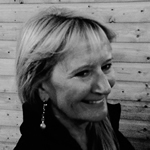by Yvonne Kelly
This week marks the start of the Royal Society for Public Health’s Scroll Free September campaign, encouraging people to take a break from social media.
In 2015, in some of the first research to examine the potential harms of excessive screen time and social media use, we found that children who were heavy users of screen-based media were less happy and had more social and emotional problems than their peers who used it moderately. Children who used social media sites for chatting were also less likely to be happy and more likely to have problems than their peers who did not.
More recently, our work on the trends for boys’ and girls’ social media use showed that 10 year-old girls who spent an hour or more on a school day chatting online had considerably more social and emotional problems by age 15 than girls of the same age who spent less or no time on social media. The number of problems they faced also increased as they got older, which was not the case for boys. The research was based on the experiences of 10,000 10-15 year-olds in the Understanding Society study. Continue reading


 Dr Aude Bicquelet is a Research Director in the Health team at NatCen – the National Centre for Social Research. Aude specialises in the analysis of ‘Big Qualitative Data’ on health-related issues and has worked with professional and regulatory health bodies such as the National Institute for Health and Care Excellence (NICE) and the Royal College of Physicians.
Dr Aude Bicquelet is a Research Director in the Health team at NatCen – the National Centre for Social Research. Aude specialises in the analysis of ‘Big Qualitative Data’ on health-related issues and has worked with professional and regulatory health bodies such as the National Institute for Health and Care Excellence (NICE) and the Royal College of Physicians. 